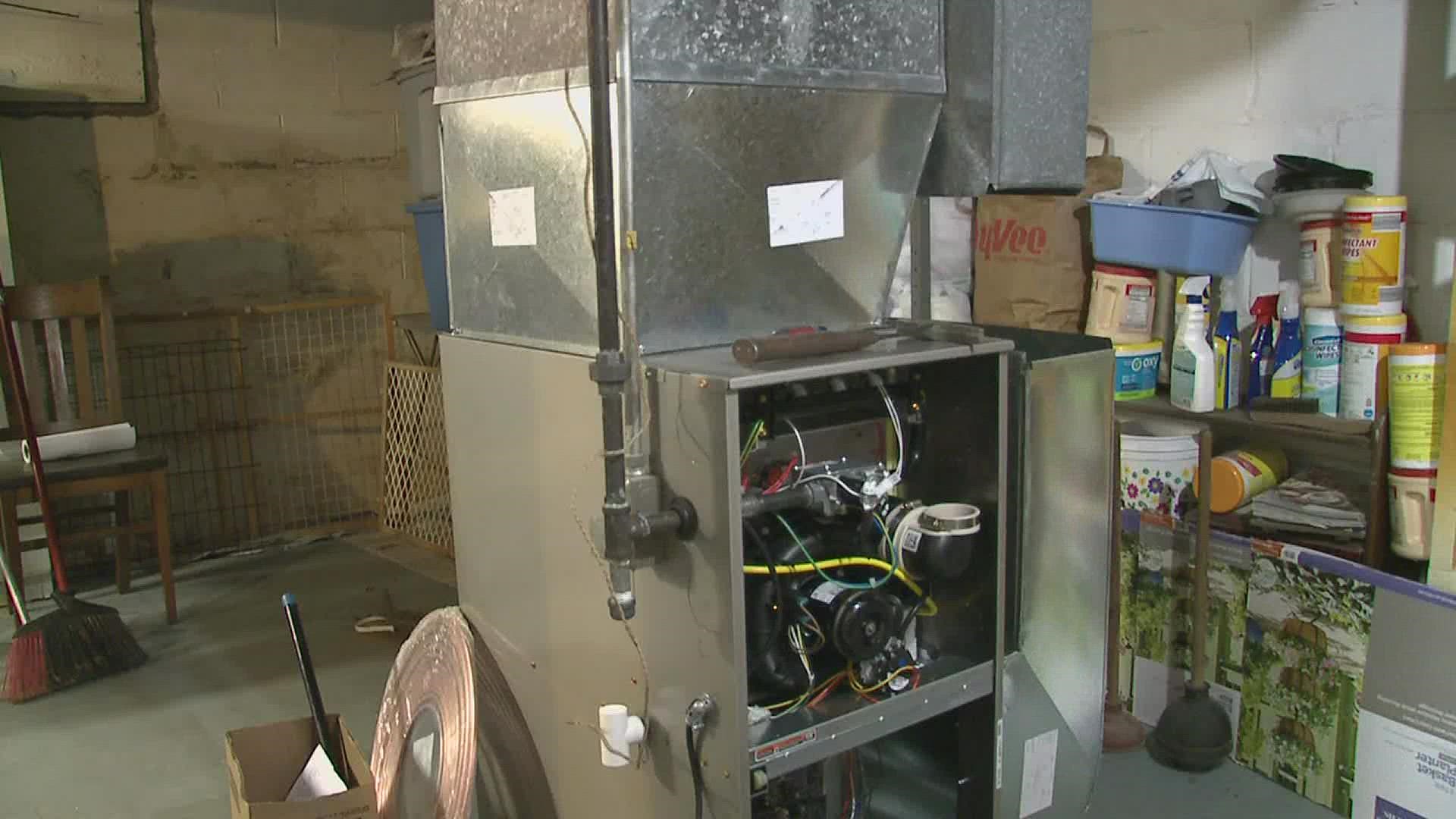ROCK ISLAND, Ill. — You can expect your heating bill to increase substantially this fall and winter season. MidAmerican Energy estimates it can be anywhere between 46% to 96% of an increase per bill.
As temperatures dip and the need to turn on your heat rises, local heating and cooling companies have many different recommendations to help combat those costs. Scott Kochuyt is in charge of residential HVAC for Crawford Company.
Kochuyt saying he too was shocked to see how high prices are expected to rise. MidAmerican stating it’s an effect of an increased global demand alongside limited production and inventory worldwide.
“We’re always encouraging people to do some preventative maintenance,” says Kochuyt.
Those at Crawford Company say the best thing is to check your furnace now so repairs can be made before serious winter weather hits. On top of that, it’s important to do things like set your thermostat back at certain times of the day to help keep costs down.
“Set your thermostat back when you’re not home, or in the evenings,” says Kochuyt, “Typically you can save about 1% for every degree that you turn your thermostat down.”
Kochuyt does say however, that turning the thermostat down any more than 8 to 10 degrees, it will cause the thermostat to overwork and cost you more.
If that’s a concern, Kevin Waeyaert with Kale Heating and Air Conditioning says you can also just leave your thermostat set at a neutral temperature all the time.
“Keep it at a setpoint. A furnace is more efficient when it's maintaining than it is when it's going temperature up temperature down. If it has to play catch up it's going to cost a lot more,” says Waeyaert.
Waeyaert says his number one tip is to make sure your furnace is as efficient as possible, which he attributes as being anywhere older than 10 years or so.
“An analogy I’ve always used was for a 95% efficient furnace, five cents of your dollar goes out the window. On an 80% efficient furnace twenty cents of your dollar goes out the window,” says Waeyaer.
Other smaller things can also help keep bills down. Checking insulation in the attic and basement can help keep cool air out of the house. Checking for leaking windows, open doors or cracked windows, can also help keep heat in.
“Another thing that helps a lot is to add humidity to the air in the winter months with a humidifier or some other device,” says Kochuyt, “because humidified air helps carry heated air better. It makes you feel more comfortable in the house.”
By combining these small things together, both companies say it’s the easiest way to help relieve the ache of a bigger heating bill.

